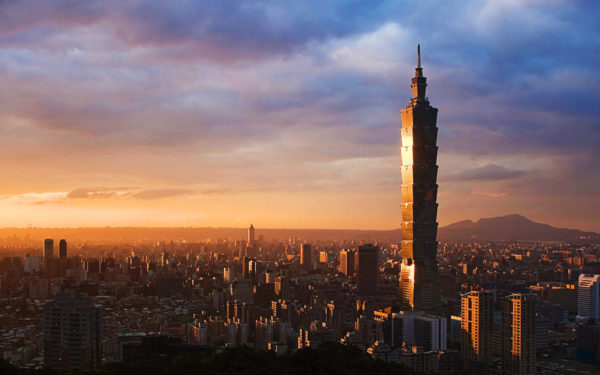Taipei Named World Design Capital 2016
Taipei WDC hopes to cultivate design literacy among its citizens, boost innovation in urban governance, promote the city’s economic transformation, and build a mature design industry ecology.

Held biennially, the World Design Capital (WDC) is a city promotion project that celebrates the accomplishments in design. As populations grow and economies prosper, the future success in cities are largely reliant on urban planning, design and management.
Taipei joined Torino, Seoul, Helsinki, and Cape Town when it was inducted into the league of World Design Capital this year. A global event initiated by the International Council of Societies of Industrial Design (ICSID), WDC is selected every two years among applicants with the most design potential.

Taipei, like other cities, is expected to face many social challenges in the future, including population, economy, urban environment, healthcare, ecology, and housing, as it grows and matures. In 2012, the city government began initiating several projects under Public Policy by Design. Taipei was the first city in Taiwan to adopt design as a means of urban transformation. Through cross-departmental integration of the city government and participation of experts from industry, government, academia, design professionals, and citizens, the Taipei City government reviews urban problems and uses design thinking to develop public policy based on people’s needs.
In addition, Taipei was the first city in Taiwan to hold a series of courses on design thinking in order to cultivate public servants’ knowledge of the concept of design thinking to permeate into all government agencies. Based on the spirit of ‘adaptive city’, WDC Taipei 2016 hopes to call on local designers and citizens to promote urban innovation in Taipei through co-design.
Through Adaptive City – Design In Motion, WDC Taipei 2016 will demonstrate that Taipei is an adaptive city that continues to improve, and strives to solve social problems through social design.

WDC 2016 is expected to be an urban transformation movement in Taipei. Using design thinking and design management as the basis for its innovative guidelines for urban governance. WDC will invite design enthusiasts to engage in major areas of Quality of Life and Health, Ecological Sustainability, Urban Regeneration, and Smart Living.
WDC 2016 will seek participation of leading local designers from industrial design, graphic design, brands, products, architectural space, and public art to lead citizens to experience design and nurture diverse innovative capacity for the city from the professional perspective. These select design professionals will be enlisted to propose related recommendations for design based on their education and experiences in their field. In addition, they will also propose prospective thinking on public policy implanted in WDC Taipei 2016, hoping to use innovative design thinking of technology, resources, manpower, and cultures to influence experiences and build a liveable city.

The strength of Taipei City is people’s activities. Taipei City is a place with integrated new and old cultures. For example, Neihu belongs to a technology park and a residential area; Ximending has featured film culture and the fashion trends for over 40 and 50 years, respectively. Taking a closer look, one can easily discover many compatible features in every area around Taipei City; unfortunately, most citizens in Taipei ignore these features due to busy life and consider ‘inconvenience’ to be the norm. The creation of every design needs time to verify.
Through time and practicality, people review whether design brings positive response to people or life. “Through WDC, let the spirit of Adaptive design not only prosper in 2016, but also pass down continuously for years through people’s experiences and events,” said Liao Chun-Hao, chief convener of Taiwanese designers. Many people do not realise that they actually engage in design, Taipei, even Taiwan, categorises design into detailed fields and considers design as producing beautiful things or styles; in fact, design includes services, thinking, planning, etc. Liao reiterated that when people are solving problems, they are engaging in design.
Click here for full information on Taipei WDC 2016, and view the calendar of activities here .
This story was first published in FORM.



